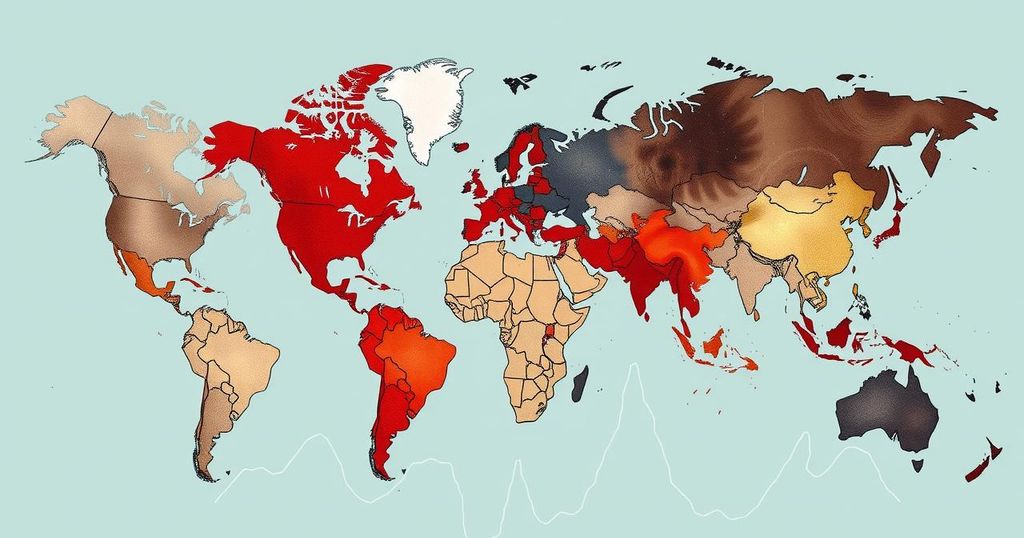The 2024 global elections witnessed a radical shift as incumbents faced widespread voter rejection, revealing deep public discontent stemming from economic instability and dissatisfaction with traditional political parties. Many countries experienced significant changes in leadership, with a marked rise in far-right populism and heightened concerns regarding electoral integrity and external interference. The landscape signifies a pivotal moment in democratic structures as global citizens reassess the efficacy of their political systems.
In 2024, global elections delivered a resounding message as voters across approximately 70 nations, representing half of the world’s population, expressed dissatisfaction by ousting incumbent leaders. Those disillusioned by economic turmoil and instability shifted their support towards unconventional candidates or disruptive forces, often leaving traditional political parties vulnerable. The global election landscape was characterized by an anti-incumbent sentiment fueled by lingering effects of the pandemic, high inflation, and social unrest related to various conflicts, catalyzing a significant shift in the political environment.
Countries like South Africa witnessed a substantial decline in support for the African National Congress, leading to a coalition government after the party ruled for thirty years. The election results in India saw Prime Minister Narendra Modi’s party lose its parliamentary majority, while Japan experienced political upheaval as the Liberal Democratic Party faced major losses amidst dissatisfaction with party scandals. The UK also saw a dramatic change with the Labour Party replacing the Conservatives, reflecting reduced backing for the traditional political dichotomy.
The rise of far-right and authoritarian movements became evident, particularly in Europe where populist parties surged in popularity. For instance, France’s National Rally achieved notable initial success, and Austria’s elections saw the pro-Russia Freedom Party gaining traction. Meanwhile, the ongoing influence of political dynasties was apparent in countries like Pakistan and Indonesia.
Concerns regarding electoral interference and misinformation intensified in 2024, with Meta reporting numerous covert influence operations linked to Russia and other countries aiming to manipulate electoral outcomes. This issue manifested notably in Romania, where the presidential election faced allegations of Russian interference, leading to the cancellation of the runoff.
The global political landscape is plagued with uncertainty as several regions, including Venezuela and South Korea, grapple with political crises and civil unrest following controversial election results. The speaker for the International Institute for Democracy and Electoral Assistance indicated a discrepancy between the general desire for democracy and public satisfaction with current democratic practices, suggesting a critical reevaluation of how democracy is functioning around the world.
The article explores the complex dynamic of worldwide elections held in 2024, characterized by the widespread rejection of incumbent governments, largely influenced by public frustration over ongoing economic and social turbulence. Marked by a rise in populist and authoritarian tendencies, the elections reflected a global mood of disillusionment with traditional political establishments. This situation was exacerbated by lingering effects of the Covid-19 pandemic and geopolitical conflicts, significantly altering the electoral landscape across various nations.
In summary, the elections of 2024 underscore a significant shift in global politics, marked by widespread dissatisfaction with incumbents and a notable increase in support for far-right movements. The interplay of economic distress, political scandals, and social unrest has prompted voters to seek alternatives to established parties. Moving forward, the state of democracy may be challenged as public confidence wanes despite a strong desire for democratic governance.
Original Source: dailyjournal.net






